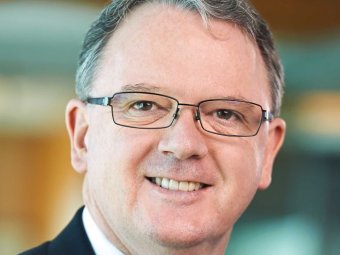
Australia's biggest oil and gas producer wants a carbon price now
Updated
Australia’s biggest oil and gas producer Woodside is now calling for a carbon price.
Key points:
- Woodside boss Peter Coleman says the time for Australia to act on climate change is now
- Woodside has joined other resource giants BHP and Rio Tinto in calling for change
- Mr Coleman says individual companies may help change broader corporate resistance to a carbon price
Speaking on the ABC’s The Business, chief executive Peter Coleman said the time to act on climate change was now.
“We need a price on carbon, we need to ensure that the most effective energy gets into the system,” he said.
“Our legacy needs to be one that both our children and our grandchildren are proud that their parents gave to them and that opportunity is now, so we think there is a will to act, the time is now, and we need to start having good policy debate.”
It is a major reversal from the company’s stance several years ago, when its then-chief Don Volte campaigned against the Gillard government’s emissions pricing scheme.
Mr Coleman’s stance will likely make for some awkward conversations at the Business Council, where he sits on the board.

Photo:
Woodside Petroleum CEO Peter Coleman says action on climate change is needed “to make our children and grandchildren proud” (Supplied: Woodside)
The council was another very vocal critic of Australia’s previous carbon price, but Mr Coleman said he would not be trying to change the council’s stance.
“I accept that the Business Council represents many, many members with diverse views both in the resources sector and manufacturers, so I am not going to talk about where the Business Council is going with this,” he said.
“We think it is time for Woodside to step up, we think it is time for industry to step up, it is difficult for industry associations to do that themselves.
“Hopefully by coming out and talking about this in a very clear and thoughtful way, there will be others that will come behind us and say yes, we are of the same view and we will start to develop momentum over time.”
Carbon pricing backed by BHP and Rio
Momentum could already be building.
Rio Tinto’s boss Jean Sebastien Jacques told The Business in late October that the company remains steadfast in its support of putting a price on emissions.
“Our policy has not changed. We believe in climate change, we believe in carbon pricing,” he said.
“We will convey our message to whoever is in power in Australia, in the US, in Canada and in China to make sure that our views are well understood.
“We want as a part of the mining industry to be a part of the solution to climate change.”
In the same week BHP released a report stating that a “market-based carbon price could minimise the costs of a low carbon transition by making clear the marginal cost of reducing emissions across all sources”.
Last week software billionaire Mike Cannon-Brookes, who has started a social media storm with his campaign for a clean energy future titled “#fairdinkumpower”, was also planning to push for a carbon price.
“The biggest kind of thing we can do I guess is put in place a carbon price,” he told ABC’s 7.30 program.
“Regardless what you think of that science, if we wait to see if the scientists are right or not, it will be too late to act.
“So, prudence dictates that we think about what contribution we can make, individually and collectively, to mitigating the effects of climate change.”
Government says it will hit targets without carbon price
However, Energy Minister Angus Taylor said the Government was confident Australia would hit its emissions reduction targets without the need for a carbon price.
“So the crucial issue here is are we going to reach our outcomes,” he told RN Breakfast.
“We reached out Kyoto outcomes easily, we will reach Kyoto two, over and above what is required, and we are well on track to reach Paris.”
Mr Taylor said current policies are working and the Government is “bringing emissions down”.
“We are going to go from 17.5 terawatt hours to 44.5 of solar and wind in the national market in the next three years — this is unprecedented — from 9 per cent up to 30 per cent,” he said.
The Business Council has been contacted for comment.
Topics:
First posted
